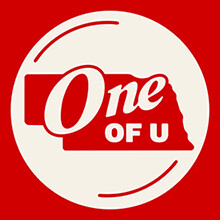
After more than 50 years managing his lab at the University of Nebraska-Lincoln, James Van Etten’s passion for research hasn’t waned.

At 79, the internationally renowned plant pathologist credits luck and collaborations for his success, including his signature discovery in 1980 of a new class of viruses that infect algae. Today, with so much yet to learn about them, he’s not inclined to stop. His collaborations now span worldwide — one of many changes in science he’s witnessed — and they keep his lab hopping.
“When you discover something that nobody else in the world has observed, to me that’s an ultimate high,” said Van Etten, the William Allington Distinguished Professor of Plant Pathology.
He admits he can’t help but share the thrill of discovery. Topping the list is the morning he returned to the lab and saw clear spots on a lawn of host alga, each clear spot started from a single infectious virus. The plaque assay opened the door to studying the first member of the algae-infecting viruses that he and colleague Russel Meints, formerly of the university, had recently discovered.
“That night I went to a department Christmas party. I’m dragging this Petri dish around to show everybody. I mean you could really just barely see the plaques,” he recalled with a laugh. “Oh, that was an exciting day.”
Van Etten spent his early career researching fungal spore germination and a bacterial virus discovered by Nebraska colleague Anne Vidaver. He switched his entire focus to studying the unusual viruses that infect green algae. Their distinctive properties range from exceptionally large genome sizes to unique DNA modifications. It turns out that algal viruses are so prevalent worldwide they constitute a previously unknown ecosystem.
Van Etten’s numerous contributions earned him election to the National Academy of Sciences in 2003. Only five Nebraska faculty members have received this prestigious honor for research contributions. It’s just one of many acknowledgements of his accomplishments.
His approach is the kind of basic research that Van Etten said is as important as the application-oriented work in demand today.
“I’m a very strong proponent of basic research. Some of the biggest discoveries came out of curiosity-driven research and that’s led to all kinds of practical applications,” he said, citing such findings as the discovery of DNA-cleaving enzymes that led to genetically modified organisms.
The desire to pursue his curiosity persuaded Van Etten to turn down job offers in industry as a new doctoral recipient in 1965 because academia offered greater freedom. Instead, he interviewed at Nebraska, accepting the job only after negotiating a year’s delay. The Midwesterner couldn’t bear to forgo a year in Italy on a National Science Foundation postdoctoral fellowship at the University of Pavia in Italy.
Van Etten grew up in 1940s East Peoria, Illinois. His father, a chemist with the U.S. Department of Agriculture, sparked his interest in science. But the profession didn’t become a calling until Van Etten took a botany class at Carleton College in Northfield, Minnesota. His charismatic botany professor’s enthusiasm influenced Van Etten to pursue graduate school at the University of Illinois at Urbana-Champaign, where he studied fungal aging.
After his stint in Italy, Van Etten headed to Lincoln in 1966, establishing his lab on East Campus where he remains today.
“When I started, the University of Nebraska was basically a teaching institution,” he said. “The idea of being a major research university was barely on their radar.”
He described a time when science was a slower, less competitive endeavor. Researchers labored largely alone in the lab, professional collaborations occurred over a beer in town and tenure was a given. Van Etten learned he’d received tenure from a friend who’d read it in the newspaper. He hadn’t even known he was being considered. This would be unthinkable for today’s young faculty, who spend months compiling dossiers on their worthiness.
The university is developing into a major research enterprise, he said. He praised Nebraska’s tremendous support system for helping professors navigate a more complicated world.
Such navigation also includes working with teams that extend worldwide, a trend rooted in science’s increasing emphasis on collaboration. Van Etten welcomes this change. Email and overnight mail delivery allow teamwork to take his research in directions he couldn’t have imagined before.
“In the old days, if I had a question I had to send a letter,” he said. “It might be two weeks before I knew the answer. Now I get it sometimes within 30 seconds.”
While Van Etten embraced email, you won’t catch him tweeting or snapchatting. He’s busy enough, he said, and he’ll continue his research as long as he stays productive and his health allows.
“I play a lot of tennis,” the university’s elder statesman explained. “But I wouldn’t play any more tennis if I retired.”







